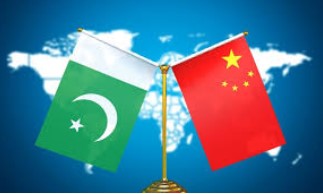
China-Pakistan Collaboration to Leverage Space Data for Sustainable Development Goals
- BusinessTechnology
- October 24, 2024
- No Comment
The International Research Center of Big Data for Sustainable Development Goals (CBAS) in China has signed a Memorandum of Understanding (MOU) with Pakistan’s Space & Upper Atmosphere Research Commission (SUPARCO). This collaboration aims to utilize space and big data technologies for effective natural resource management and the assessment of regional Sustainable Development Goals (SDGs).
The partnership seeks to advance joint research initiatives between China and Pakistan, specifically leveraging data from the Sustainable Development Science Satellite 1 (SDGSAT-1). This satellite plays a crucial role in supporting the attainment of the SDGs, promoting a data-driven approach to sustainable development. Reports indicate that the MOU will facilitate improved data sharing, technological exchange, and collaborative research efforts, as highlighted by China Economic Net (CEN).
Professor Guo Huadong, Director-General of CBAS, underscored the importance of big data and technological innovation in addressing the challenges posed by the UN 2030 Agenda. He stated that by enhancing data collection, analysis, and sharing through advanced technologies, such as artificial intelligence, comprehensive analyses related to the SDGs can be conducted.
During the ceremony, Professor Guo and Tang Shihao, Deputy Director of the National Satellite Meteorological Centre (NSMC) in China, presented gifts including the “Collection of SDGSAT-1 Satellite Nighttime Light” and the “Atlas of SDGSAT-1 Satellite Nighttime Light Image” to six scholars from Pakistan, Ghana, Nigeria, Tanzania, Thailand, and Seychelles. They encouraged greater involvement from scholars in developing countries and small island nations in SDG research, emphasizing the importance of collective efforts to promote global sustainable development.
The atlas, which was launched by CBAS in Beijing, is based on data gathered by the SDGSAT-1 satellite, recognized as the world’s first space science satellite dedicated to supporting the UN 2030 Agenda for Sustainable Development, following its launch in November 2021.







